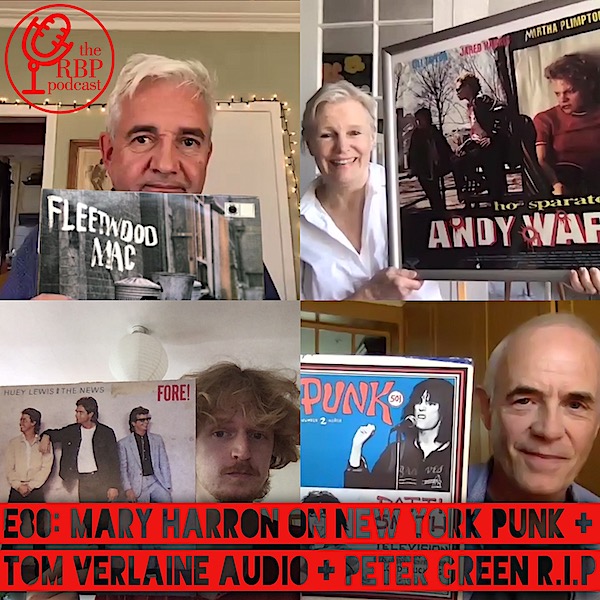
In this episode we welcomed the wonderful Mary Harron, director of cult movies I Shot Andy Warhol and American Psycho. After a brief digression on dating Tony Blair at Oxford, the Canadian relived her memories of the punk rock scene at New York’s CBGB club, including her interviews with the Ramones and Talking Heads for John Holmstrom & Legs McNeil’s pioneering Punk magazine. Mary also talked about her friendship with ZE’s Michael Zilkha and her long fascination with Warhol and the Factory. Along with her hosts, she heard clips from Martin Aston’s 1987 audio interview with Tom Verlaine, prompting her recall of his seminal band Television and a general discussion of 1977’s classic Marquee Moon album.
Mark & Barney paid heartfelt tribute to tragic blues-guitar hero Peter Green, ruminating on what made the Fleetwood Mac man so much more emotional a player then his UK blues-boom peers. They also said goodbye to the hilarious CP Lee, former frontman with Mancunian satirists Alberto Y Lost Trios Paranoias. After bringing Mary’s directorial career up to date – with an aside on the American Psycho soundtrack that afforded Jasper a chance to wax lyrical about Huey Lewis & the News – Mark selected his library highlights, including notable pieces about Brian Jones, Labelle, the Bush Tetras and, erm, the Knack. Jasper rounded things up – and brings matters back down to earth – with remarks on pieces about “superstar DJs” and Stock Aitken Waterman teaboy Rick Astley…




